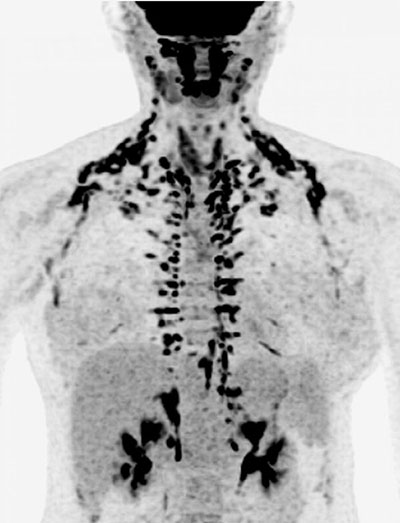Drug increases brown fat activity in healthy women
A National Institutes of Health study found that chronic treatment with mirabegron, a drug approved to treat overactive bladder, activated brown fat in a small group of healthy women and had several other beneficial metabolic effects. Brown fat, or brown adipose tissue, is a form of fat that burns calories to generate heat. The research, led by Aaron Cypess, M.D., Ph.D., at the NIH’s National Institute of Diabetes and Digestive and Kidney Diseases (NIDDK), was published on Jan. 21 in the Journal of Clinical Investigation.
Fourteen women aged 18-40 of diverse ethnicities participated in the study at the NIH Clinical Center’s Metabolic Clinical Research Unit. For four weeks, each participant received daily doses of 100 mg of mirabegron, an amount exceeding the 50 mg maximum dosage approved by the U.S. Food and Drug Administration.
At four weeks, the participants’ brown fat activity had more than doubled since the first day, though their body weight and body mass stayed the same. Other changes included:
- Increased resting energy expenditure
- Higher levels of HDL (high-density lipoprotein) cholesterol — often referred to as “good” cholesterol — and bile acids, which help digest fats and regulate cholesterol
- Improved processing and regulation of blood glucose (blood sugar)
This page was last updated on Friday, January 21, 2022
